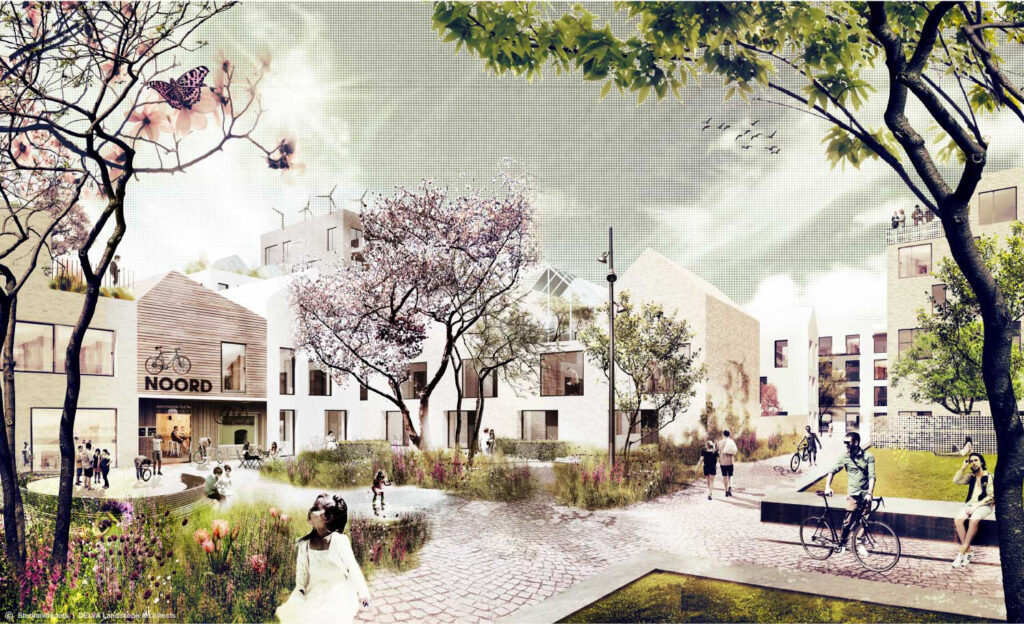Amsterdam launches Living Lab for circular urban development
Buiksloterham, a district in the North of Amsterdam, is being developed by public and private parties into a neighbourhood with high circular ambitions. The area – currently a post-industrial zone with large brownfields – will be developed with an addition of 3,500 new homes and 200,000 m2 of office space over the coming years. On March 5th, 2015, Aldermen of the Municipality of Amsterdam and twenty local stakeholders will sign the Circular Buiksloterham Manifesto committing to the circular ambitions for Buiksloterham. This moment will mark the official launch of the district as a Living Lab for Circular Development.
An ambitious action plan has been defined to help realize the neighborhood’s high circular potential. The “Circular Buiksloterham” study showed that the area’s energy demand can be significantly reduced, resulting in an annual CO2 savings potential of 60,000 tons. This can be achieved by applying passive house standards for new construction alongside other interventions like smart DC (direct current) grids. The area will be able to achieve high levels of material reuse by applying circular building principles and smart systems for waste collection and recycling. Water cycle innovations will make Circular Buiksloterham a ‘rainproof’ district, where about 73,000 m3 per year of drinking water can be saved and 9,000 kg of phosphate (fertilizer) can be recovered from waste water. A local biorefinery will be able to process organic wastes into new resources.
The radical changes needed to transition from a linear to a circular city still face many legislative, technological, and financial barriers. Designating Buiksloterham as a Living Lab allows local stakeholders to join forces with research institutes such as AMS (Amsterdam Institute for Advanced Metropolitan Solutions), Wageningen UR, TU Delft, TNO and University of Amsterdam to jointly develop innovative solutions and new business models. Bottom-up and top-down parties in the area such as the local water utility, Waternet, the waste-to-energy company, AEB Amsterdam, housing corporation, De Alliantie, and local residents are actively working to achieve the high ambitions through innovation.



